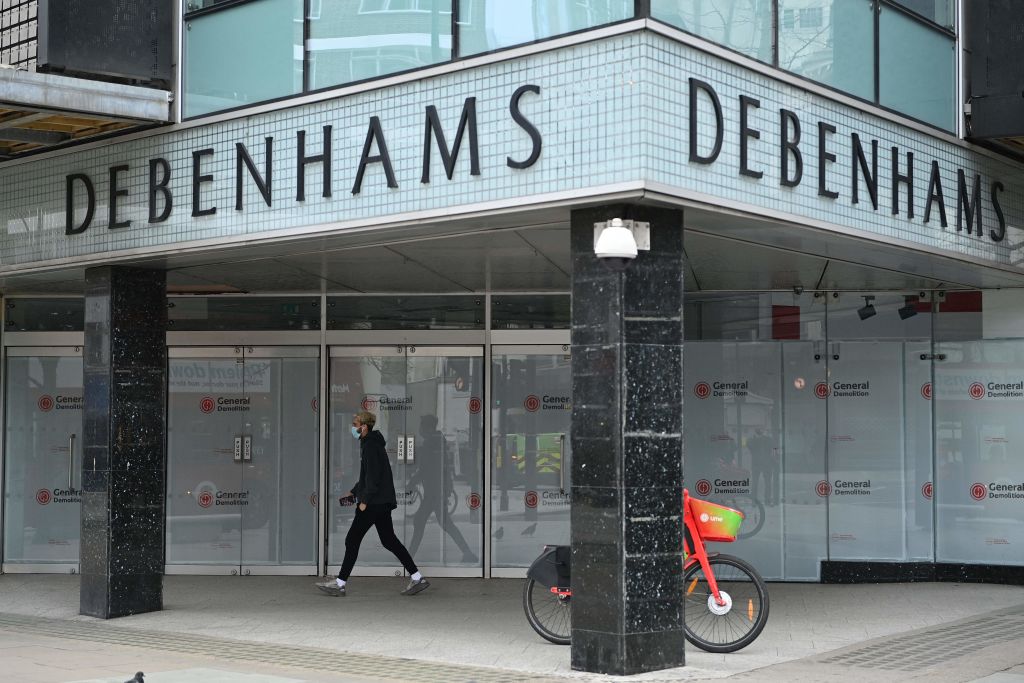Can the High Street recover from the Covid crisis? Even before lockdown, around 14 shops were shutting every day, and 2019 was the worst year for sales in a quarter of a century. After months of enforced closure, shops have finally reopened. But with mandatory face masks, social distancing and roped-off fitting rooms – and no indoor cafes, or restaurants to punctuate a day of retail therapy – shopping will be vastly inferior to the pre-Covid experience.
Nonetheless, there are good reasons to be bullish on the future of the high street – and too many commentators are being needlessly gloomy on its prospects.
For a start, households have accumulated significant savings during lockdown. By December 2020, Britain’s collective nest egg had hit £197bn. Although thousands face unemployment or financial uncertainty, with close to five million still on furlough, it seems clear that those who have been fortunate enough to spend lockdown saving money won’t hang on to that cash for long.
What’s more, while a moderate relaxation of covid restrictions has been greeted with duteous gratitude, there is no reason to believe that our attitudes or behaviour have irrevocably changed. Online sales rose by nearly 75 per cent over the year to January in large part because we’ve been stuck indoors. And before wagging the finger at Amazon, bear in mind that many traditional retailers have built online propositions, leveraging technology to cope with the impact of Covid-19 and its associated restrictions.
In a similar vein, it was inevitable that lockdowns would accelerate the home-working trend. But it’s unlikely to trigger a ‘Zoomageddon’ in which town centres are hollowed out and commercial real estate implodes. Only a minority of those classified as full-time home workers correspond to the image of professionals sat in the home office. Surveys suggest that most office workers will continue to spend the majority of their week in traditional offices. And much of the activity will simply be displaced: that we commute less won’t mean we swap coffee house for Maxwell House, or never set foot in a shop again. Early reports already suggest that high streets in smaller cities and towns are seeing a particularly strong bounce back.
Ultimately, towns with reasonably high density should continue to prosper in the long term. According to the Centre for Cities, in Brighton (pre-Covid), vacancy rates for shops were as low as seven per cent. On the other hand, in Newport, almost a quarter of stores lie empty. There is huge variation – which tells us that e-commerce is not the sole reason for any decline.
And yet, despite the introduction last year of a Digital Sales Tax, UK officials are now mulling over an online sales tax. By their baffling logic, firms that have adapted their business models to offer products and services consumers need during Covid are ‘cashing in’ – a wrong that must be righted. But companies don’t bear the economic burden of tax increases: people do. And we risk creating perverse incentives against adopting new technologies and practices that could ensure longer-term survival for traditional retailers.
Instead, the government must identify smart policies that can facilitate a high street recovery – beginning with a ceasefire on the hospitality industry. The introduction of ‘Permitted Development Rights‘, which allow a change of use from office space to residential, was good policy. But a number of councils have sought and obtained exemptions; others are trying to follow suit. PDRs should be defended and preferably expanded, with exemptions removed. Requirements for ‘change of use’ should be scrapped so that high streets can offer the shops and cafes that people actually want. Key government and local authority services could also move to former retail space to help boost footfall. The unpopular business rates regime could be fundamentally reformed.
We can’t expect the state to solve all woes: retailers will need to adapt in challenging circumstances and we’ll likely see plenty of Schumpeter’s creative destruction in the coming years. But the doomsayers are wrong – our high street won’t be another Covid casualty.





Comments